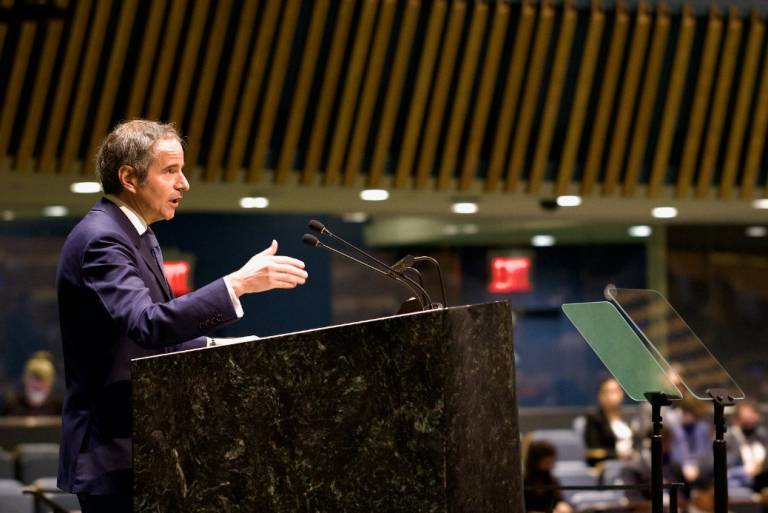Student blog by Teemu Partanen*
The right-wing versus the left-wing, the ‘elite’ versus the ‘common man’, and many other forms of the “us versus them” – confrontational logic can be observed increasingly in table talks and social media platforms, sometimes even in the official media outlets. While open debate is important part of our democracy and our general behavior as thinking human beings and political subjects, this new culture of constant confrontation might be dangerous in the long run. It seems to be rather clear that there is at least some sort of increase in the polarization of our society. What are the risks related to this, and could there be someone actually benefitting and trying to intensify this phenomenon?
Societal polarization in this context can be explained through the philosophy of Manichaeism. From this perspective polarization boils down to a process where complex social relations are defined and identified in Manichean black and white way. Societal polarization by itself might not directly cause or even be necessary for any negative effects such as violent extremism to happen, but unfortunately it can cause an enabling or even enhancing atmosphere where extremism is more likely to occur (McNeil-Willson et al., 2019).
By observing current news from around the globe, it appears that in some countries, like the United States, polarization of the society has reached noticeable levels. It can also be seen that this polarization and its effects are causing at least some level of political destabilization. The interlinkage of polarization and political destabilization raises up an important question: could someone be behind it or at least trying to speed up the process?
In his research article Mikael Wigell (2019, 262–263) describes hybrid interference as a wedge strategy. In hybrid interference some external actor try to wedge target country or coalition into separate divisions. This strategy can be implemented by different covert ways like deniable cyber operations, spreading fake news and dis/misinformation or even financing anti-government groups. There are no universal tools for hybrid interference, so these operations are always tailored for specific targets and means and the applications used can vary. The goal of wedge strategy is to divide target country into opposing divisions and to fuel internal conflicts. When successful, this strategy encourages certain actors in target countries to take voluntarily steps to advance the external agent’s interests or at least to weaken the unity of the target country and paralyse its decision-making capability. Hybrid interference alone is not a clear military operation or action as such. This might affect to the fact that a successful operation goes usually unnoticed by the general population. (Wigell 2019, 262–263.)
There has been lots of discussion about Russia’s assumed hybrid warfare strategy in western academic and policy circles. The widely conceived idea of Russia’s hybrid warfare strategy – or the “Gerasimov doctrine”, of which Sandor Fabian (2019) considers to be at least partly based on a myth in a sense that it is a comprehensive strategic concept on its own – consists phases where the abovementioned means of wedge strategy are used. In the first phase different psychological, informational, political, and economical ways are used to enhance an atmosphere where different follow-up actions are possible. Second phase tries to deceive and confuse target nation’s decision making, for example by using spread of fake information. After this these phases just keep intensifying from destabilizing propaganda to actual military operations. (Ibid., 311–313.) If these non-military actions are more effective than direct military actions, those latter might never be even needed, and then different political or strategic goals are achieved without the general population in the target nation ever even realizing that they were manipulated by someone. Or so the ideal-typical depiction of successful hybrid wedge strategy usually goes.
It is important to withstand the effects of these new complex threats to keep our society coherent and well working. One way to achieve this could be the increase of our individual resilience against these complex threats. One concrete way to try to prevent ourselves from falling to be a puppet without free will is to implement some everyday cybercrime defense in our life. Felson and Eckert (2018, 149–150) have elaborated an approach to handle cyber risks where people should ask five questions about messages emerging in front of them: 1. Who created this message?; 2. What techniques are used to attract my attention?; 3. How might different people understand this message differently from me?; 4. What lifestyle, values and points of view are represented in, or omitted from, this message?; and 5. Why was this message sent? These questions, or others like them, could easily be used to identify more than just cybercrime.
Next time you see a juicy, ostentatious and provocative comment in social media, think before reacting. Think what or who is behind that message, information, or point of view. Be critical and look at the other side of that subject before falling into an endless pit of fake news, lies, provocation and intentional deceiving. Do not let intentionally provocative views mislead you thinking Manichean black and white way about complex issues. Debate openly, but before debating, seek facts from all angles and look at the other side of the matter as well. Don’t be a puppet!
*This student blog post has been done as part of the course SAFS01 Societal Security: Contemporary Challenges in the Masters Degree Programme in Security and Safety Management (SAFER) in fall 2020.
References
Fabian, S. (2019). The Russian hybrid warfare strategy – neither Russian nor strategy. Defense & Security Analysis 35(3), 308–325. https://doi.org/10.1080/14751798.2019.1640424
Felson, M. Eckert, M. (2019). Crime and Everyday life: a brief introduction (6th ed.). Thousand Oaks: SAGE.
McNeil-Willson, R., Gerrand, V., Scrinzi, F. & Triandafyllidoup, A. (2019, September). Polarisation, Violent Extremism and Resilience in Europe today: An analytical framework. The BRaVE project. http://brave-h2020.eu/repository/D2.1_BRaVE_concept_paper_final_10Dec2019.pdf
Wigell, M. (2019). Hybrid interference as a wedge strategy: a theory of external interference in liberal democracy. International Affairs 95(2), 255–275. https://doi.org/10.1093/ia/iiz018





